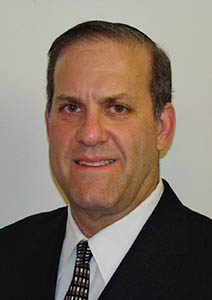

Teachers are empowered to transmit knowledge to students in their classrooms. Mr. Kreisberg, my science teacher, taught me that the pursuit of knowledge can be an adventure. Mrs. Greenberg, my English teacher, demonstrated that literature can be mind-expanding. And Dr. Hershkowitz’s semester of social psychology inspired me to change my career track.
You don’t have to pay tuition to a prestigious school to encounter great teachers. The subject titled “Lessons for Your Life” is taught to me frequently in Penn Station by Croissant Man, AM-New York man and Guitar man. Croissant Man wants to sell you something, AM-New York man wants to give you something and Guitar Man wants a donation from you.
Whenever a morning person greets Croissant Man with, “Hi Jim, how are you doing?” He responds, “Another day.” I feel the intense boredom in his monotonal response. But he brings himself to work every day in this stressful economy and I do respect him for that. Another day can be something you have to drag yourself through or another day can be the opportunity of your lifetime. “Rabbi Tarfon would say: The day is short and the work is considerable” (Pirkei Avos, Ch. 2). If you skipped work for a day and only did Gimilut Chasadim (good deeds) for your family, friends and neighbors, think of how much you’d accomplish in one day. The take-home lesson: Time, not money, is the real use it or lose it.
AM-New York Man has a completely different attitude as he enthusiastically proclaims, “Good morning to you. Trust me… if you’re breathing, it’s a good morning!” How often do I step off my commuter train in the morning and express thanks to the Almighty that I am breathing? I am usually late for an appointment and some guy’s duffel bag just rolled over my foot as I jog to the subway, which probably just left the station. AM-New York Man gives me a lot more than a free paper each morning. When you have your health and another day, you have the world. The take-home lesson is the Dayenu principle of life, as explained by my life-long teacher Rabbi Shlomo Riskin: Zero in on what you have in life, not what you’re missing.
Guitar Man sings rock and roll music all day long and never gets exhausted. His open guitar case has some coins, some dollar bills and a sign that reads, “I’m a street musician—too weird to live, too mean to die.” I don’t know what his sign means and I have never recognized even one of his tunes.
I have never seen such perseverance in a man, and that inspires me. He stands in his corner of Penn Station, enthusiastically singing and strumming from sun-up to sun-down, even if his audience is only one person. I admire passion when I see it and doing what you love all day is a display of passion. As I put a dollar bill in his guitar case, he smiles and sings the words, “Thank you brother, now you go have some fun….promise me.” The take-home lesson: Persevere in what you love.
Although my walking by the three professors of Penn Station is random, I found that the sequence of their messages is meaningful:
Do I use my time wisely?
Do I appreciate what I have?
Am I passionate about what I do?
I have accomplished a lot, and it is not even 9 a.m. I never imagined my daily commute could be so stimulating. What an unlikely school in which to encounter such exemplary teachers. Ben Zoma asks: Who is wise? The one who learns from every person, as it is written (Psalms 119:99). I have gained understanding from all my teachers (Pirkei Avot Ch. 4).
By Dr. Alan Singer
Dr. Alan Singer is a marriage and family therapist in New Jersey and New York City. He has an 80 percent success rate in saving marriages of couples on the brink. He is listed on the National Registry of Marriage-Friendly Therapists. He counsels via Skype, blogs at www.FamilyThinking.com and is the author of Creating Your Perfect Family Size (Wiley). Married for 39 years, he and his wife are the parents of four grown children. He can be reached at [email protected] or 732-572-2707.













